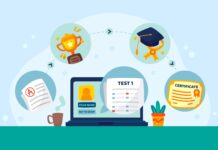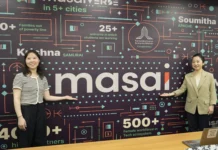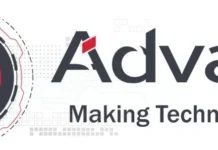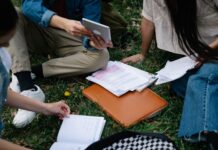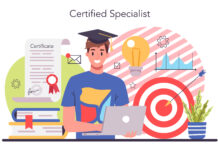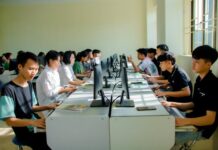Bangalore, January 13, 2025: The Atal Innovation Mission (AIM), NITI Aayog, and the United Nations Development Programme (UNDP), in partnership with Citi Foundation, have officially launched the seventh edition of the Youth Co:Lab National Innovation Challenge for 2024-2025. AssisTech Foundation (ATF), India’s leading organization accelerating Assistive Technology (AT) innovation for People with Disabilities is the implementation partner for the program.
This year’s challenge invites young entrepreneurs, including those with disabilities, to develop innovative solutions that “Enhance access to opportunities and well-being for Persons with Disabilities” (PwDs). The initiative, designed to foster social entrepreneurship and drive sustainable development, will be implemented in collaboration with AssisTech Foundation.
Applications are open, inviting young/differently abled entrepreneurs innovating solutions that enhance access to opportunities and wellbeing of Persons with Disabilities. The challenge will focus on empowering young entrepreneurs & entrepreneurs with disabilities innovating for solutions, across the following sub-categories – Inclusive and accessible assistive technology, Inclusive educational technology and skilling solutions for Persons with Disabilities (PwDs) and Care services models and solutions for PwDs.
ALSO READ: Thyroid Awareness Week: A Call to Action for Better Health
Youth-led startups (18-29 years; extended to 32 for marginalized groups, including PwDs) who have come up with solution that addresses one or more of this year’s focus areas: Inclusive Assistive Technology, Accessible Education and Skilling, or Innovative Care Models are eligible to apply for the programme. The startup/team, if incorporated, should be less than 5 years old, i.e. the formation of the founding team/startup should be during or after December 2019 and must have a working prototype or product ready for deployment. Eligibility extends to
NGOs whose work resonates with the three themes of program. Last date for application is 18th January 2025.
Speaking at the virtual launch, Dr. Angela Lusigi, UNDP Resident Representative for India, emphasized, “We firmly believe that young people are not just the leaders of tomorrow—they are the changemakers of today. This belief is embodied in Youth Co:Lab, now in its seventh edition. For the first time, it prioritizes startups by and for persons with disabilities. Promoting disability-inclusive development is not just the right thing to do; it’s essential for achieving the SDGs.”
Shortlisted Participants of Youth Co:Lab National Innovation Challenge in India 2024-25 will benefit from the National Springboard Programme, where the top 35 startups will gain access to a 2 Month virtual incubation program designed to refine their business models, enhance product-market fit, and receive hands-on mentorship from industry leaders, culminating in a comprehensive growth strategy; A 5 Day in-person bootcamp where the top 20 startups will be invited to an immersive bootcamp featuring workshops, expert-led sessions, and personalized mentoring, focusing on scaling operations, investment readiness, and strategic partnerships to drive enterprise growth.
The programme will also provide seed grants, enabling funding opportunities worth INR 1.5 – 2.5 Lacs each for the top 6 startups to foster innovation and provide initial support towards growth. Additionally, startups will get a chance to represent India at the Regional Asia-Pacific Youth Co:Lab Summit. The Regional Youth Co:Lab Summit provides young entrepreneurs with access to technical and business mentors, networking opportunities, and a doorway to learning and acceleration opportunities.
Highlighting the critical role of Assistive Technology, Prateek Madhav, CEO and Co-Founder of ATF, stated,
“By combining our deep knowledge of Assistive Technology with the Youth Co:Lab platform, we aim to inspire and support young innovators to create solutions that make society more inclusive and accessible for Persons with Disabilities(PwDs). Empowering youth is central to the future of innovation.” Online Courses with Certification
Online Courses with Certification
About UNDP
UNDP works across 170 countries and territories to eradicate poverty while protecting the planet. We help countries develop strong policies, skills, partnerships, and institutions so they can sustain their progress.
UNDP has worked in India since 1951 in almost all areas of human development, from systems strengthening to inclusive growth and sustainable livelihoods, as well as sustainable energy, environment, and resilience. UNDP’s programme continues to integrate a global vision for catalytic change with India’s national priorities. With over 30 projects on the ground in almost every state, today, it works to achieve Sustainable Development Goals by transforming traditional models to do development differently.
About AssisTech Foundation
AssisTech Foundation (ATF), is India’s first Assistive Technology (AT) ecosystem that focuses on empowering Persons with Disabilities (PwDs) by enabling learning, livelihood, and living opportunities (3Ls of empowerment). ATF does it by harnessing the power of AT & supporting development of innovative technology products and services. In a span of 4 years, ATF has impacted the lives of 9.1 lakh (910,000) Persons with Disabilities (PwDs) through its high impact programs and initiatives. We have established a network of over 450 AT Startups in the country and are accelerating 54 AT Startups as a part of our portfolio who have collectively developed 110+ AT products and secured 49 patents.
ATF’s core work revolves around the strategic use of AT as a transformative tool for enablement & our initiatives focus on addressing the 4As – Availability, Awareness, Association, and Acceleration of Assistive Technology led enablement of persons with disabilities.
Platforms like EasyShiksha.com offer valuable courses that can help you gain the necessary skills












